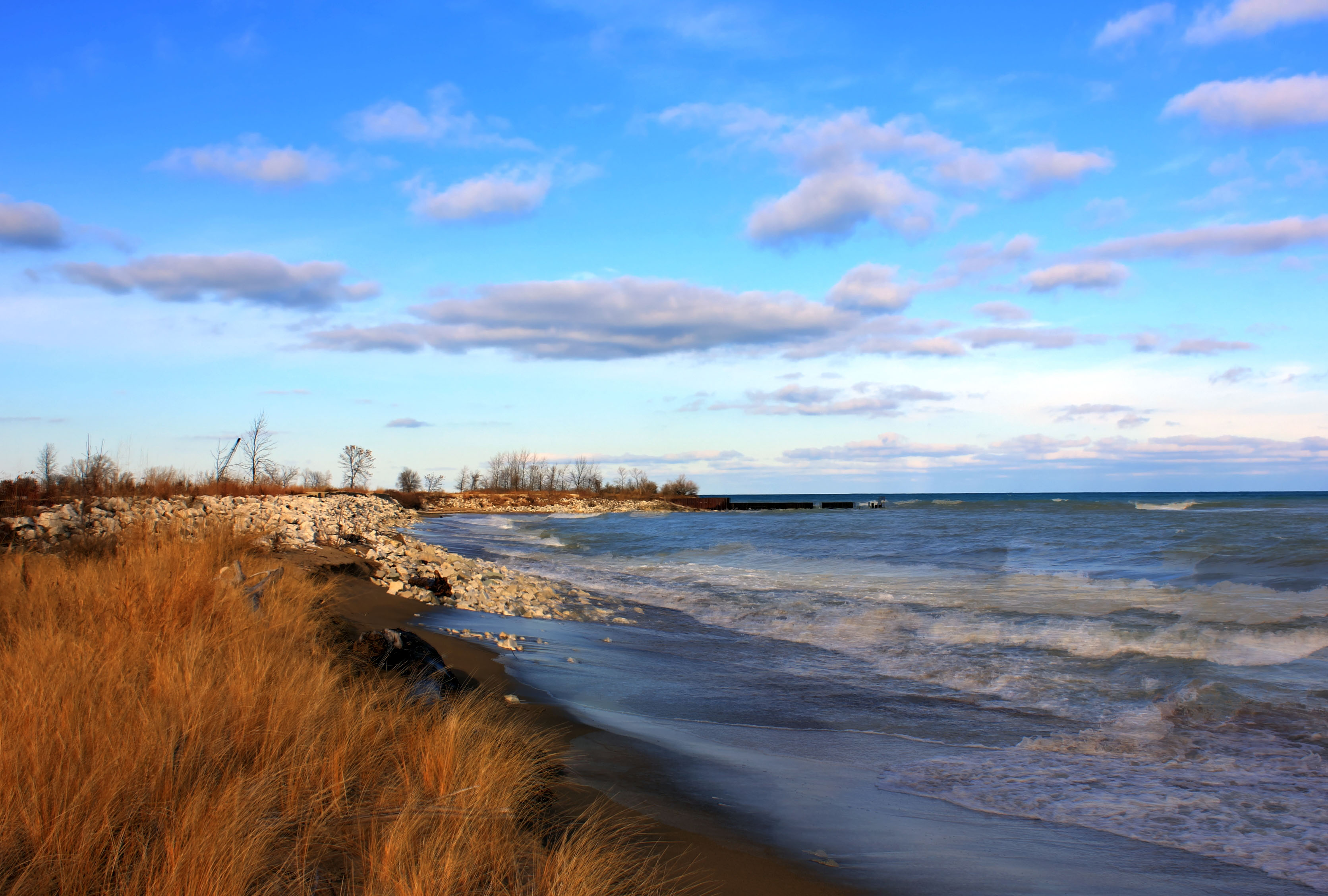The Great Lakes — Superior, Huron, Michigan, Ontario and Erie — make up the largest body of fresh water on Earth, accounting for one-fifth (about 21%) of the planet's freshwater surface. The Great Lakes provide the United States and Canada with drinking water and opportunities for recreation, wildlife viewing, fishing, transportation, tourism and many other uses that generate jobs and economic benefits for the region.
Threats to the Great Lakes
While Illinois only touches one of the Great Lakes - Lake Michigan - the entire Great Lakes system is connected in many ways, and threats to one lake are usually threats to all the lakes. Threats we are dealing with now include nutrient pollution, which causes algal blooms, aquatic invasive species, climate change, legacy industrial pollution and ongoing sources of pollution such as coal plants that emit mercury and other contaminants which end up in the water.
Our Work to Protect the Great Lakes
Lake Michigan is one of northeastern Illinois' greatest assets. It provides us with drinking water, has huge economic benefits such as increased property values and profits from recreation and tourism, and generally provides a sense of pride and attraction to living near such a beautiful natural feature and the unique ecosystems it supports.
Each year, we participate in Great Lakes Day in Washington, D.C., organized by the Healing Our Waters coalition. We join other advocates from across the basin to encourage our elected officials to support Great Lakes protection and restoration. Priority issues vary from year to year, but advocating for continued funding for the Great Lakes Restoration Initiative is usually a top priority. This program and the funding it receives from Congress is used to:
- Clean up Great Lakes Areas of Concern
- Prevent and control invasive spcies
- Reduce nutrient runoff that contributes to harmful agal blooms
- Restore habitat to protect native species
Progress has been made in restoring the Great Lakes, but the Trump Administration wants to eliminate this program and roll back the investments we have made in a healthier Great Lakes. By attempting to slash the budget for the Environmental Protection Agency and other core agencies, the Administration is stepping in the way of critical work to build on past progress and achieve a better future for the Great Lakes region.
How You Can Help
The Great Lakes need your help. Contact your members of Congress and ask them to support efforts to protect and restore the Great Lakes by advocating for full funding of the Great Lakes Restoration Initiative and fighting back against any proposed cuts to key federal agencies like the Environmental Protection Agency.
If you live near the lake, you can help keep it clean by participating in a local beach clean-up or organizing your own clean-up. Plastics and other trash left on the beach often ends up in the water, polluting the environment and threatening wildlife. Participating in a clean-up can be a fun way to reduce litter pollution while demonstrating stewardship and care for our shared resources.
Visit our Addup Page to find Great Lakes updates and actions you can take to help protect this important resource.
If you live in the Chicago area, check out our Chicago Water Team and the work they are doing to protect Lake Michigan. Take a look at the Chicago Group's event calendar to see if there is an upcoming water team meeting or beach clean-up near you.
Check out our other Great Lakes chapters:
Indiana (Hoosier Chapter)
Minnesota (North Star Chapter)
New York (Atlantic Chapter)
Wisconsin (John Muir Chapter)

Illinois Beach State Park